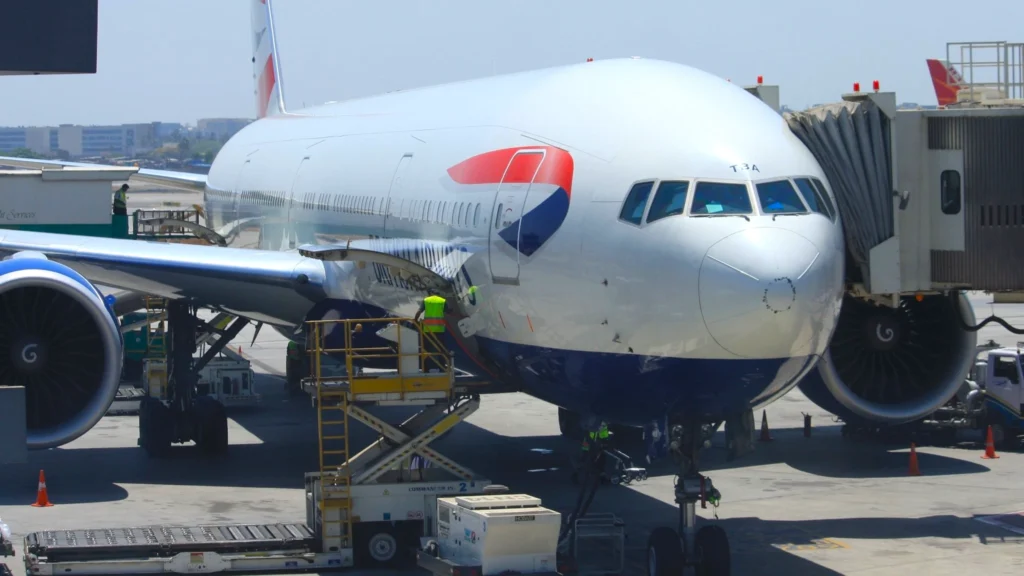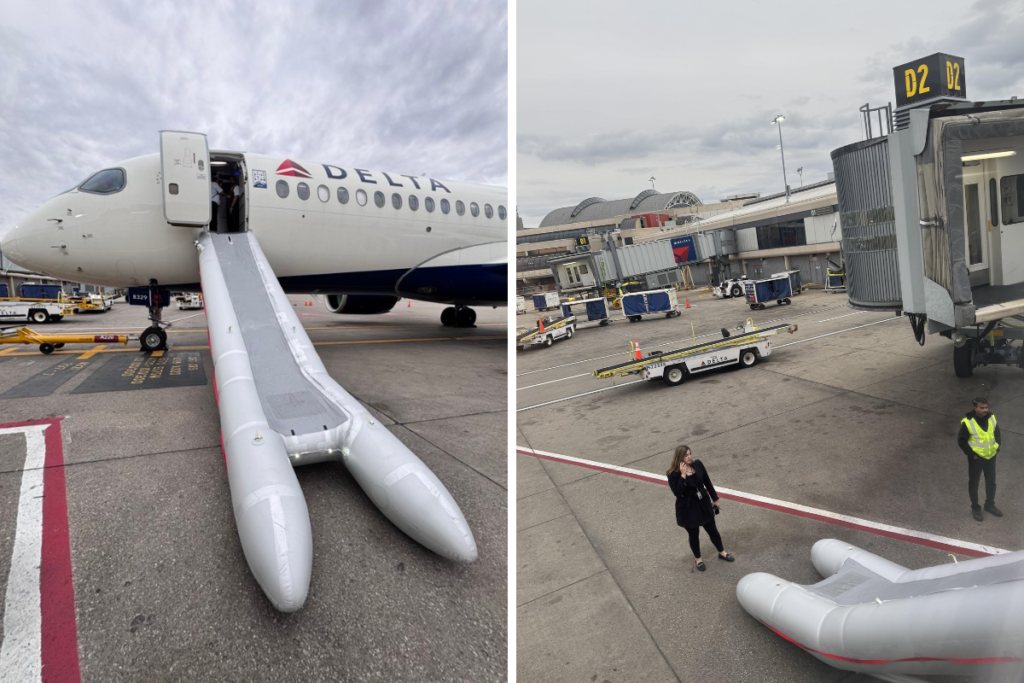
It's the fear of every flight attendant: the moment the door is armed, and a costly mistake is made. This nightmare recently became a reality for a Delta Air Lines crew member at Pittsburgh International Airport. An emergency evacuation slide on an Airbus A220 was unintentionally deployed just as the aircraft was preparing for departure on a Saturday evening. This single incident resulted in an estimated 70,000 dollar damage and a major disruption for passengers. Even a veteran flight attendant with 26 years of experience was involved in this costly ground error. Let's break down how this expensive mistake happened. 😊
First Main Section Title 🤔: The Inadvertent Slide Deployment (ISD) Mechanism
The incident occurred during the critical pre-departure phase when flight attendants arm the doors in line with standard safety procedures. The veteran crew member accidentally lifted the door handle after arming the forward left-hand door.
This simple mistake triggered the emergency power assist function. Once a door is armed, any movement of the handle activates this system, which automatically forces the door open and deploys the slide within seconds. Crucially, once this process begins, there is no time to stop it.
Incidents like this are formally categorized as **Inadvertent Slide Deployments (ISDs)** within the aviation industry. Airbus previously estimated that airlines experienced up to three ISDs per day globally, making it one of the most expensive forms of ground error.
Second Main Section Title 📊: The Cost Breakdown and Passenger Disruption
The financial impact of this error is significant, as emergency evacuation slides are costly, complex components. The deployment halted the flight and caused major disruption for the passengers.
**Cost of the Mistake**
| Scenario | Estimated Cost (Airbus A220) | Details |
|---|---|---|
| **New Slide Replacement** | 50,000 to 70,000 USD | The estimated damage cost for this incident. |
| **Used Slide Repacking** | Up to 30,000 USD | Cost still incurred due to manufacturer servicing and inspection fees. |
Because the slide deployed directly against the jetbridge, passengers were temporarily trapped onboard until engineers could manually detach the inflated slide and reattach the jetbridge. The crew member involved was reportedly "flustered" by the mistake and publicly apologized to the disrupted passengers.
Despite strict cross-check procedures designed to prevent these mistakes, ISDs still occur. Most happen during the **disarming phase** upon arrival, but this incident occurred before departure. This highlights the ever-present risk of human error in cabin safety operations.
Third Main Section Title 👩💼👨💻: Preventing Costly Ground Errors
Given the high cost and disruption caused by ISDs, airlines are constantly looking for ways to minimize these ground errors. The industry recognizes that procedural discipline is key.
**Industry Safeguards and Training**
- **Point and Call:** Some airlines, like British Airways (since 2023), have adopted the Japanese "Shisa Kanko" or "point and call" method.
- **Methodology:** This involves crew members physically pointing to controls and verbally confirming each action to reinforce focus and reduce human error by as much as 85%.
- **Training:** Continuous training and strict adherence to cross-check procedures are vital, especially at busy stations where single crew members might handle the forward door.
Final Section: Key Summary 📝
The Delta ISD incident serves as a stark reminder of the high cost of human error in aviation, costing the airline a potential 70,000 dollars and highlighting the importance of procedural discipline in door operations.
While Delta has not commented on procedural changes yet, the event underscores the industry's need for continuous training and safeguards like the point and call method to prevent these expensive and disruptive mistakes. Safe travels! Feel free to leave any questions in the comments below! 😊
Delta Attendant Mistake Summary
Frequently Asked Questions ❓




